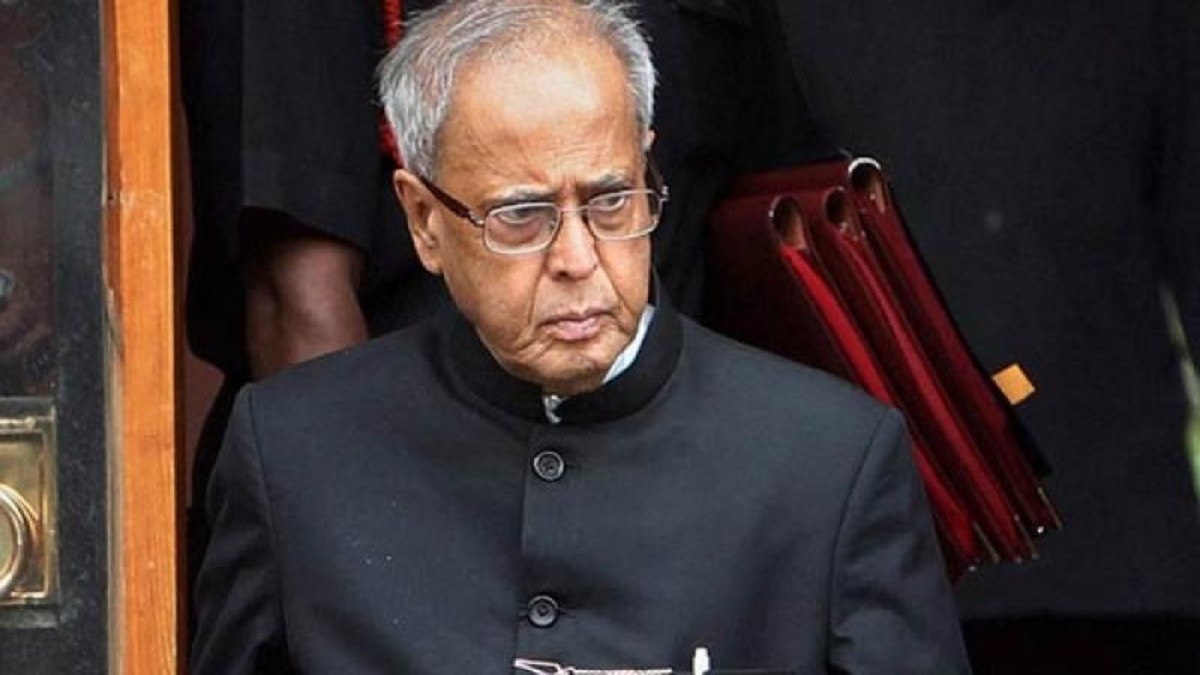Former President and distinguished parliamentarian Pranab Mukherjee passed away at the Army Research and Referral Hospital on Monday evening after suffering septic shock this morning during the course of his lung infection treatment. Mukherjee was 84.
He had been admitted to the hospital on August 10 for a surgery of a large brain clot. He was also found to be COVID-19 positive at admission to the hospital.
Ever since the surgery, Mukherjee had been in deep coma and on ventilator support with lung infection that was soon followed by renal complications.
The death of Mukherjee was announced by his son and former MP Abhijit Mukherjee who tweeted, “With a Heavy Heart , this is to inform you that my father Shri #PranabMukherjee has just passed away inspite of the best efforts of Doctors of RR Hospital & prayers ,duas & prarthanas from people throughout India ! I thank all of You.”
The central government has announced seven-day state mourning.
Only last year Mukherjee was conferred the highest civilian honour of the country, the Bharat Ratna, in recognition for his service as a long-term parliamentarian who served in the Congress in various capacities including as the party’s chief crisis manager.
Mukherjee served in the Cabinets of late Indira Gandhi, PV Narasimha Rao and most recently Manmohan Singh.
Under the UPA, Mukherjee was minister of defence, external affairs and finance starting 2004 and the Congress’ strategist in parliament until his journey as a parliamentarian ended in July 2012 when he became the 13th President of the Indian Republic.
On July 25, 2017, Mukherjee’s association with Parliament also ended after he demitted the highest office followed 48 action packed years.
Mukherjee began his career in politics in 1969 as an independent member representing Bangla Congress — a regional party in Parliament from 1969 to 1971.
Pranab’s relationship with the Congress began with the merger of Bangla Congress into the Congress Parliamentary Party in 1971.
There was no looking back since. Mukherjee was a member of Rajya Sabha for five terms
till 2004 when he was elected to the Lok Sabha for the first time ever from Jangipur after having lost two previous LS polls from Malda in 1977 and Bolpur in 1980. At that time he resigned as Congress Treasurer to contest.
The only time when Mukherjee was out of Parliament was from 1987 to 1993.
During this period he was out of Congress too for a year from 1987 to 1988.
Groomed in early politics by late Indira Gandhi who he always considered his mentor, Mukherjee repaid his mentor by never giving any evidence to the Shah commission the Janata government set up to look into the excesses of the emergency declared by Indira Gandhi.
After serving in the Cabinet of Narasimha Rao, Mukherjee went on to grow close to Sitaram Kesri who succeeded Rao as Congress president in 1996.
“I shared an excellent working relationship with Sitaram Kesri,” Mukherjee said in his memoirs adding that Kesri immediately appointed him the head of party’s foreign affairs cell.
Mukherjee’s indispensability to the Congress and his knowledge of party constitution later came in handy when the Congress Working Committee stalwarts came to him asking how to dislodge Kesri to install Sonia Gandhi as party president.
And Mukerjee showed the way forward that led to
Kesri’s ouster from the party and Sonia’s installation in 1998.
During UPA years, Mukerjee grew closer to Sonia Gandhi who refused to spare him to contest for
President in 2007 saying “you are needed in the government”.
It was only later in 2012 that Mukherjee contested for the office of President and won.
In his memoirs Mukherjee recalled how everyone had hoped that after Sonia Gandhi declined to be prime minister in 2004 after Congress staked claim to form government he had anticipated that she would name him for the post.
“The prevalent expectation was that I would be the best choice for prime minister after Sonia Gandhi declined….There was later speculation in the media that I wouldn’t join the government because I couldn’t work under Manmohan Singh who had been my junior. The fact was I was reluctant to join the government and told Sonia Gandhi accordingly. She insisted I should join and that I would be vital to its functioning. As it turned out Dr Singh would talk to me on all important issues and seemed to depend on me. We shared a good working relationship,” he wrote in his last book “The Coalition Years: 1996-2002”.
Mukerjee who could never be PM rose to be President, the highest constitutional office, which he made accessible for the people.
Discussions
Discussions
